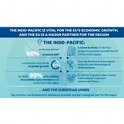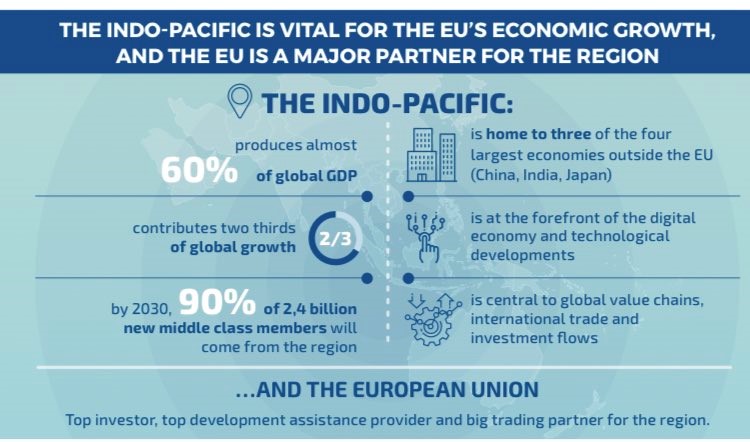Global Risk Perspectives - Monthly insights on geopolitics, trade & climate
Back to articlesBernardo Pires de Lima 

28.10.2021
The AUKUS response
Australia going back on a purchase of diesel submarines to the tune of 65+ billion dollars from French company Naval Group, favouring American suppliers instead and going for nuclear submarines, is more than a political, military and legal knife in France’s back. It’s a deliberate choice signalling who really has Australia's back in the Indo-Pacific. This will certainly fill reams of paper with legal discourse but, politically, it was an obvious choice. The US are not only the only magnanimous guarantor of security for Asians concerned with China, but also an indispensable ally in technological competition. It’s a double blow to Europe as symbolically represented by France, the European state with the largest defence budget. The old continent lags behind in technological competition. One can learn from this. Both individually and at EU level, we need to be more ambitious. The shock felt in Paris is not involuntary. France will hold EU presidency for the first half of 2022, and also have a presidential election then. Marine Le Pen isn't the only one to turn her back on the Atlantic to favour, say, an alliance with Moscow, which puts Macron in a precarious place when Macron himself finds American pressure on Canberra to buy submarines unacceptable. So this could prove a very relevant topic in French politics.
But the most important angle comes from my argument that AUKUS is a swift response to withdrawal from Afghanistan. It was important for the US to signal something. Taiwan is strategically sensitive, and so is Hong Kong. One should tread lightly, or risk hardening Chinese resolve. So, for the US, Australia would serve a security role in containing China, permitting a response to bilateral pressure felt in Canberra over the past few years. This move would also bring in the UK, which needed a quick post-Brexit realignment that would prioritize the Indo-Pacific strategy and relaunch their bilateral relationship with the US. In other words, the nuclear submarine agreement serves the interest of the three parties involved, weakens Europe’s strategic position (and will certainly hinder the upcoming EU-AUS trade agreement) and sends an indispensable signal to Beijing in this post-Afghanistan era. However, Washington risks the undermining of Atlantic trust, especially with France, which may elicit some make-up moves, even if Berlin barely spoke out — and left the submarine debacle out of their election altogether — and Rome went unheard. Leaders of EU institutions offered criticism, but that only goes so far in Washington. India and Japan were quick to praise the initiative. China immediately requested entry into their trans-Pacific trade partnership, an impressive Asian free trade agreement, which Americans declined to join, based on one of Trump's anti-Obama tantrums.

All of this must be analysed from a geopolitical and security angle, factoring in ever more competitive dynamics among major world powers. This trilogy will define the decade and not by chance. But it can also be seen as a predictable move from a US administration that lacks reliable bonds with Congress Republicans and needs to stoke the flame of Chinese containment to gather support, without which it can't push through major legislative packages in the post-Covid era. International politics in no more than an endless cycle of interconnected dynamics.
Disclaimer: Bernardo Pires de Lima, research fellow with the Portuguese Institute of International Relations (Instituto Português de Relações Internacionais) at Nova University of Lisbon.
The views, thoughts and opinions expressed herein belong solely to the author and do not reflect the official positions or policies of, or obligate, any institution, organization or committee he may be affiliated with.
Bernardo Pires de Lima is Political Adviser to the President of the Portuguese Republic. He is also a Research Fellow at the Portuguese Institute of International Relations, IPRI-NOVA, an international politics analyst for the national Portuguese television channel RTP, for radio station Antena 1 and the Portuguese daily Diário de Notícias. He chairs the Luso-American Development Foundation’s (FLAD) Curators Council and has been a Research Fellow at the Johns Hopkins Center for Transatlantic Relations in Washington DC and at the National Defense Institute in Lisbon, Portugal. He has penned eight books on contemporary international politics, the most recent being Portugal na Era dos Homens Fortes: Democracia e Autoritarismo em Tempos de Covid (Portugal in a time of strongmen: Democracy and authoritarianism in a time of Covid), published by Tinta-da- China in September 2020.



